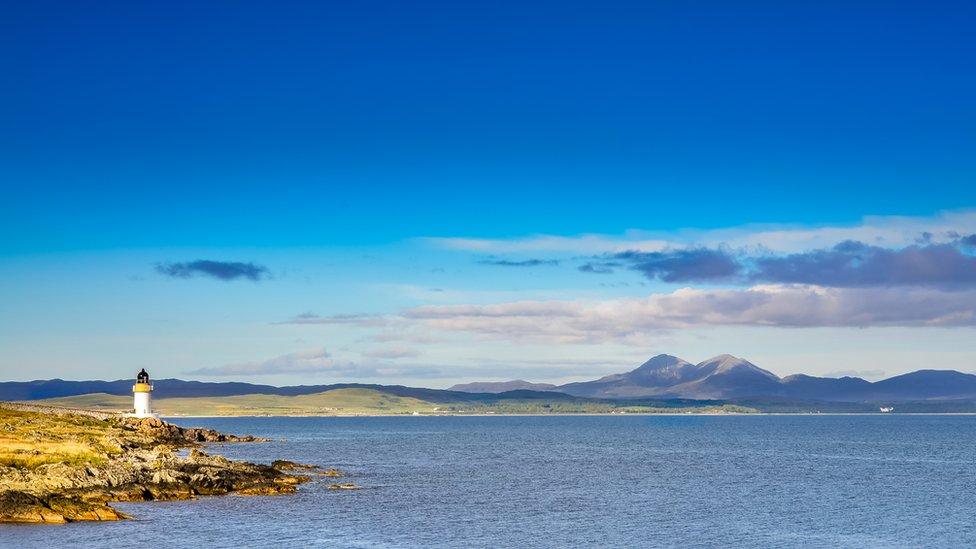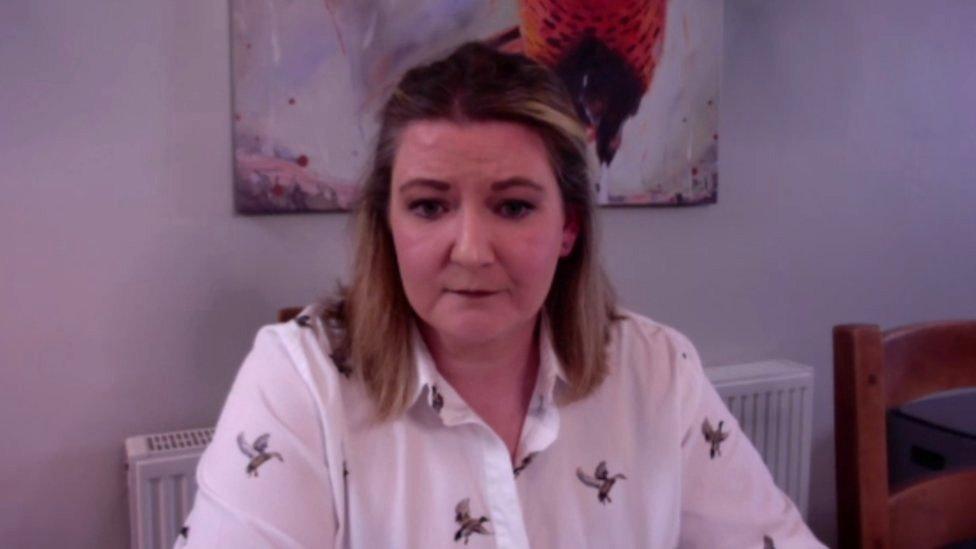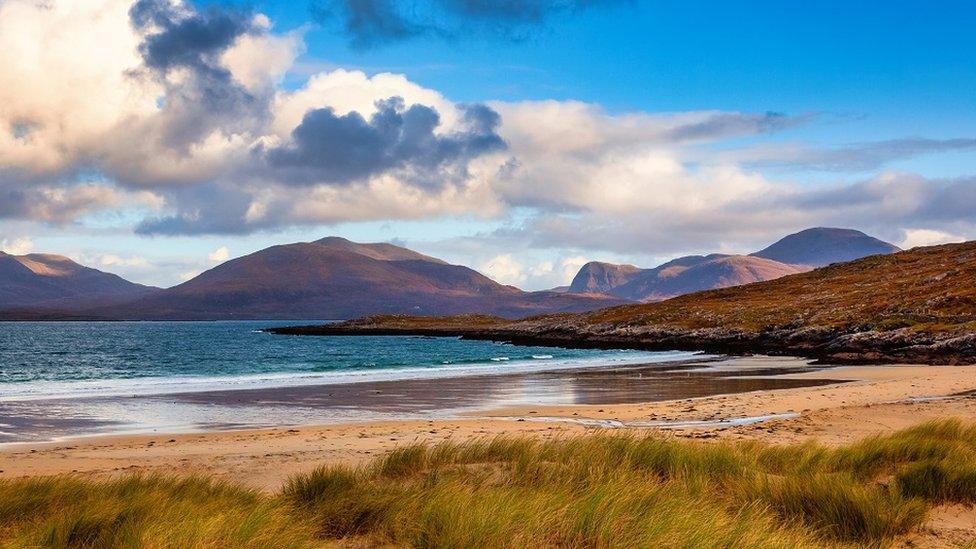Covid in Scotland: Uncertainty over reopening islands to tourists
- Published

Limits on travel from the mainland to islands such as Islay could remain in place after 26 April
Some tourism businesses on Scotland's islands have said continuing restrictions on travel from the mainland would be hugely damaging.
Scotland could see a significant easing of Covid-19 rules on 26 April, including an end to limits on non-essential travel within the mainland.
But travel from the mainland to the islands could remain off limits to prevent the virus being brought in.
Businesses on Islay told the BBC they rely on mainland visitors to survive.
Mainland Scotland could move out of level four lockdown restrictions to the more relaxed level three on 26 April.
Islands such as Islay in Argyll along with the Western Isles, Orkney, Shetland and some Highland islands are already at level three due to their lower Covid rates.
It is possible that they could go down to level two later in the month, meaning they would still be out of step with the mainland.

Distillery boss Anthony Wills said Islay's economy relied on tourism
The Scottish government has been discussing with island communities whether restrictions on travel from the mainland should remain in place after 26 April to help prevent the risk of the importation of the virus.
It is more than three weeks since the Scottish government said it would discuss the matter "over the next couple of weeks" and businesses have said it is time for clarity on the issue.
'Going to be difficult'
Anthony Wills, who runs Islay's Kilchoman Distillery, said he had sympathy for islanders who supported a travel ban but said the isle's economy relied on tourism and many businesses had been "starved" of income.
He said: "I think everybody is craving for opening up and allowing visitors back to the island so we can get back to our normal lives."
Mr Wills added: "It is going to be very difficult to police if we go down to level two and the rest of Scotland down to level three.
"Policing people coming to the islands is going to be impossible. We will see visitors."

Hotelier Emma Clark said island businesses were ready to welcome back visitors
Emma Clark, of Islay's Glenegedale House, said her business had been losing £2,500 a day since the middle of last month.
Her hotel relies on UK guests and many of those who had booked stays have now been cancelling due to uncertainty over whether they would be able to get to the island.
"They are changing to booking stays on the mainland," she said.
The Easter weekend is usually a busy time for hotels taking summer bookings.
But Mrs Clark said: "This Easter weekend we never took one booking whatsoever."
Mrs Clark, who is vice-chairwoman of Argyll and The Isles Tourism Co-operative, appealed to the Scottish government to give clarity now on whether visits from the mainland will be permitted.
She said the tourism industry had proved last summer, when travel rules were relaxed, that it could operate safely for both locals and visitors.
To potential visitors, she said: "Our welcome is still here and islanders are desperate for families and visitors to return."

Other islands, such as those in the Western Isles, are already at level three and are expected to see further relaxation of rules
Marc Crothall, chief executive of the Scottish Tourism Alliance, said an announcement from the Scottish government was needed urgently to give island businesses a chance to prepare for reopening.
He said: "By not knowing, you are not in a position to notify staff or plan your supply chain.
"Tourism is not just to the benefit of businesses, it is of benefit to the whole of an island's economy."
The Scottish government said it wanted travel to return to normal, but this had to happen "very carefully" to ensure the continued suppression of Covid-19.
A spokesman said: "As we have previously said, we know many businesses and some communities are keen to open as soon as is safe to do so, but that others are more nervous of the impacts of doing so.
"If we open up too much, too quickly then we risk a resurgence of the virus.
"We must also do this in a way that carries most support from island residents and communities and will give them confidence and reassurance that it is safe for people to visit our islands and also for islanders to visit the mainland."
He said the government was engaging with island authorities, communities and businesses to better understand their views.

